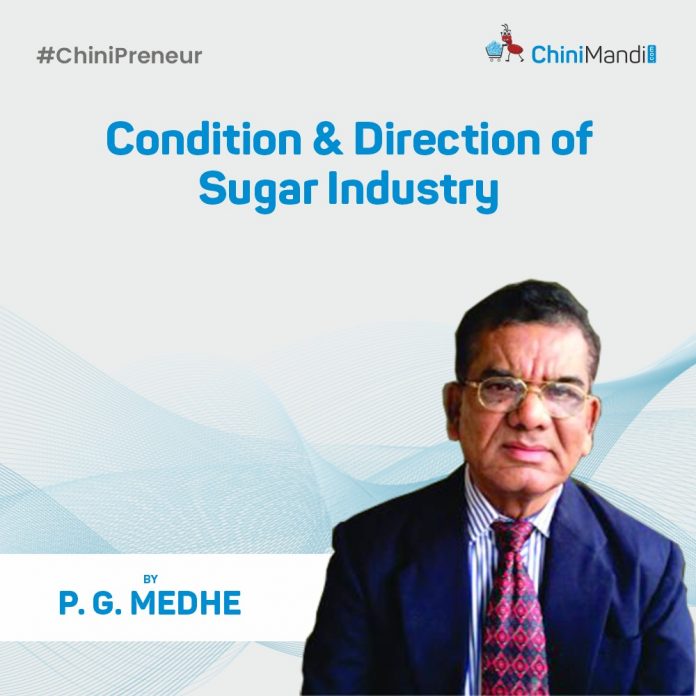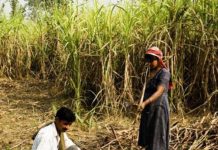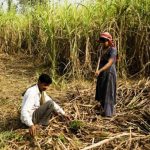The jute industry plays a crucial role in India’s economy, especially in states like West Bengal, Bihar, Odisha, Assam, Andhra Pradesh, Meghalaya, and Tripura. By adhering to these norms, the government supports jute farmers, workers, and the overall industry. The Government of India has made it mandatory to use jute bags for packaging certain commodities. Specifically, the Cabinet Committee on Economic Affairs (CCEA) has approved the following norms:
1) Food Grains: 100% of food grains must be compulsorily packed in diversified jute bags.
2) Sugar: 20% of sugar should also be mandatorily packed in jute bags. It is said that this decision aims to protect the interest of domestic jute production and promote self-reliance in line with the ‘Aatmnirbhar Bharat’ initiative. Additionally, using jute bags benefits the environment since jute is a natural, biodegradable, renewable, and reusable fiber that meets sustainability criteria.
AVAILABILITY OF RAW JUTE REQUIRED FOR JUTE INDUSTRY OF THE COUNTRY: If we take into consideration the total requirement of raw jute required by India’s jute industry, we will find that 100% requirement is not fulfilled by the indigenous raw jute. More than 20% of the required raw jute is imported from foreign countries. The total global import situation of the raw jute utilized for manufacturing jute bags is as follows:
GLOBAL IMPORTS:
1) Pakistan: Pakistan is one of the largest importers of raw jute, accounting for approximately 31% of total global imports.
2) India: India, too, significantly imports raw jute, making up around 22% of the total global imports.
3) Other : Importing countries include Nepal and China, which together contribute approximately 25% of the total imports.
INDIGENOUS PRODUCTION: India is a major producer of jute goods, accounting for 63.55% of the total production. While India produces a significant amount of raw jute domestically, it still relies on imports to meet the demand for jute bags and other jute products.
In summary, while India produces a substantial portion of its raw jute, imports play a crucial role in meeting the requirements for jute bag manufacturing. The balance between indigenous production and imports ensures a steady supply for this eco-friendly industry.
CABINET COMMITTEE ON ECONOMIC AFFAIRS DECISION ABOUT 20% PACKAGE OF SUGAR IN JUTE BAGS: The Cabinet Committee on Economic Affairs chaired by Hon’ble Prime Minister, Shri Narendra Modi, has approved reservation norms for mandatory use of jute in packaging for the Jute Year 2023 -24 (1st July, 2023 to 30th June, 2024) on 8th December, 2023. The Mandatory packaging norms approved for Jute Year 2023-24 provide for 100% reservation of the food grains and 20% of sugar to be compulsorily packed in jute bags.
75% of the total production of the Jute Industry is Jute Sacking Bags of which 85% is supplied to the Food Corporation of India (FCl) and State Procurement Agencies (SPAs) and remaining is exported/sold directly.
Government of India purchases Jute sacking bags worth approximately Rs. 12,000 crores every year for packing of food grains, hence ensures guaranteed market for the produce of Jute Farmers and Workers. Average Production of Jute Sacking Bags is about 30 lakhs bales (9 lakh MT) and Government is committed to ensure complete off-take of the sacking production of the jute bags in order to protect the interest of Jute farmers, workers and persons engaged in the Jute Industry.
PERCENTAGE OF TOTAL JUTE BAGS REQUIRED BY THE INDIAN SUGAR INDUSTRY IF 20% SUGAR PACKAGING MADE COMPULSORY: The mandatory packaging norms for the Jute Year 2023-24 stipulate that 20% of sugar must be compulsorily packed in jute bags. Considering this, let’s assume total sugar production as 325 Lakhs MT, 20% of this total production will be 65 Lakhs MT. For packaging this 20% sugar production round about 16 to 17% of the total Jute bags manufactured will be required for the Indian sugar industry.
A) Advantages of using Gunny Bags for sugar packaging:
1) Cost-effective: Gunny bags are relatively inexpensive compared to other packaging materials except PP bags.
2) Breathability: Gunny bags allow air circulation, which can help prevent moisture buildup and maintain product quality.
3) Eco-friendly: Gunny bags are biodegradable and made from natural fibers, making them more environmentally friendly.
4) Durability: Gunny bags are sturdy and can withstand the weight of sugar without tearing easily.
5) Easy handling: Gunny bags are easy to handle and transport, especially for bulk shipments.
B) Disadvantages of using Gunny Bags for sugar packaging:
1) Contamination risk: Gunny bags may not provide an airtight seal, increasing the risk of contamination from pests, moisture, or foreign particles.
2) Inconsistent quality: The quality of gunny bags can vary, leading to inconsistencies in packaging and potential product damage.
3) Limited barrier properties: Gunny bags do not offer the same level of protection against moisture and odors as modern synthetic packaging materials.
4) Environmental impact: While biodegradable, the production of gunny bags requires significant water and energy resources.
5) Labor-intensive: Packaging sugar in gunny bags can be labor-intensive, requiring manual handling and potentially slowing down the packaging process.
6) Costlier than the PP Bags: PP bags are very cheaper than the Gunny Bags which affects the cost effectiveness.
7) In export transactions not feasible: While exporting the sugar out of country, importers demands the sugar packed in PP bags.
8) Scarcity of raw jute material: Raw material is not sufficiently available in our country. Hence requires to import from the Bangla.
Additionally, availability of the same is solely dependent on the natural conditions.
Similarly, maximum jute bag manufacturing units are located in Kolkata. As per previous experience, every year worker’s union declares strike especially in month of December/January which affects the regular supply of Gunny Bags when the crushing is in full swing. Manufacturers also takes chance to revise their prices. On the contrary, PP bags are very cheap and easily available everywhere.
MERITS AND DEMERITS OF PP BAGS:
Merits-
1) Strength and Durability: PP bags are strong and durable, providing protection against moisture, pests, and physical damage during transportation and storage.
2) Moisture Resistance: They have good moisture resistance, keeping the sugar dry and preventing caking.
3) Versatility: PP bags can be customized in terms of size, design, and printing, making them suitable for branding and marketing.
4) Recyclable: They are recyclable and can be reused for various purposes.
5) Cost effective: PP Bags are very cheaper than the Gunny bags
6) Availability: Easily available everywhere as compared to the Gunny bags.
Demerits –
1) Environmental impact: While recyclable, pp bags are made from plastic and contribute to plastic waste pollution.
2) Limited Biodegradability: PP bags are not readily biodegradable which can lead to long-term Environmental issues if not properly managed.
WHY UNION GOVT SHOULD RECONSIDER ABOUT THEIR DECISION TO MANDATE 20%
JUTE BAGS FOR SUGAR PACKAGING ? : Let’s delve into the reasons behind the government’s decision to mandate 20% jute bags for sugar packaging and explore the challenges faced by the sugar industry-
1) Environmental and Technical Factors:
a) Jute Bags vs. Sugar: Jute bags are beneficial for grains and seeds because they protect them from deterioration and loss of germination. However, sugar is highly hygroscopic, and its quality can be affected by moisture gain during production, transportation, and storage. Jute bags, being airy, may not be suitable for sugar due to these differences in properties.
b) Direct Consumption: Unlike grains that need cooking, sugar is consumed directly. When packed in jute bags, it poses challenges:
c)Jute Fibers: Jute fibers cannot be easily removed from sugar.
d) Jute Batching Oil: Jute bags use an oil that may contain carcinogenic compounds. Direct consumption of sugar packed in jute bags could be harmful.
e) Leakage and Moisture: Large gaps in woven jute bags can lead to sugar leakage and moisture gain. Microbiological Growth: Moisture content affects microbiological growth in sugar.
f) Color Change: The color of sugar packed in jute bags changes over time during storage. Consumer Reluctance: Bulk consumers (beverage, biscuit, and pharmaceutical companies) are hesitant to accept sugar packed in jute bags due to these reasons1.
2) Operational Challenges:
a) Increased Costs: Jute bags are often more expensive than HDPE/PP woven sacks. This cost difference discourages their use by cooperative sugar mills and consumers.
b) Technical Testing: HDPE/PP woven sacks have been tested and found to exceed the qualifying qualities over jute bags in parameters like filling, stitching, drop test, hook application, and aeration1.
3) Customization and Adaptability: Sugar packaging requirements vary based on customer preferences, regional regulations, and market demands. A flexible packaging system is essential to accommodate different bag sizes and formats.
In summary, while jute bags are suitable for certain commodities, the unique properties of sugar and operational considerations warrant a reevaluation of the mandatory 20% jute bag requirement. Balancing environmental concerns, cost-effectiveness, and consumer safety is crucial for sustainable packaging decisions.
In conclusion, while the Union Government’s mandate for using 20% jute bags in sugar packaging aims to promote eco-friendly practices, it has posed challenges for the sugar industry. The operational and technical limitations, coupled with consumer reluctance, warrant a reconsideration of this requirement. Recommendations could include exploring alternative packaging materials that balance sustainability and practicality …PP BAGS conducting further research on jute bag suitability for sugar, and engaging stakeholders in a dialogue to find optimal solutions.
P.G. Medhe is the former Managing Director of Shri Chhatrapati Rajaram Sahakari Sakhar Karkhana Ltd and sugar industry analyst. He can be contacted at +91 9822329898.
If you want to read more about the news about the Sugar Industry, please continue reading Chinimandi.com














